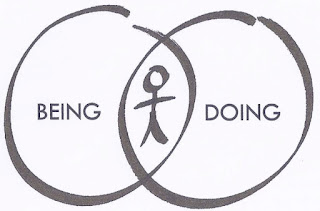Lenten Meditations on the Last Words of Christ - Week 4
"My God, My God, why have you forsaken me?" (Matthew 27:46)
Where was God when the earthquake and tsunami struck Japan? Is he all powerful but uncaring, or is he all loving but impotent? Why did he allow so many innocent people be washed away? Where is God when over 1 million abortions take place each year in United States alone? Why did God allow the cancer to return? Where is God when life hurts?
“Eloi, Eloi, lema sabachthani?” Jesus cried out from the cross with the very questions that shake our faith. The great Catholic theologian Hans Urs von Balthasar reflected on the depths of the suffering Jesus endured for us on the cross. In his homily, “The Scapegoat and the Trinity”, he said, “Jesus, the Crucified, endures our inner darkness and estrangement from God, and he does so in our place. It is all the more painful for him, the less he has merited it ... there is nothing familiar about it to him: It is utterly alien and full of horror. Indeed, he suffers more deeply than an ordinary man is capable of suffering, even were he condemned and rejected by God, because only the incarnate Son knows who the Father really is and what it means to be deprived of him, to have lost him (to all appearances) forever. It is meaningless to call this suffering ‘hell,’ for there is no hatred of God in Jesus, only a pain that is deeper and more timeless than the ordinary man could endure either in his lifetime or after his death.”
As Catholics we reject the notion that the Father could forsake the Son; that God could turn away from God. But Jesus was not merely God, he was the God-man and in his humanity, hanging on that cross it is not beyond reason to see that he felt abandoned and forsaken. In that moment, in the midst of suffering that goes beyond what we could imagine, in the fullness of his human nature Jesus experienced that dark night of the soul when it seems that even God has turned away.
What does this have to do with answering questions about evil in the world? How does this apply to the problems of our pain and suffering? Because the Son of God passed through the way of suffering he was able to redeem our pains. It means that though this world is fallen and broken we must pass through the way of suffering, the way of the cross, if we want to experience the joy and glory of the resurrection. The good news is that we have a Savior that will go through it with us, or as Catholic author Melinda Selmys explains, “For Christ, in being forsaken on the cross, entered into this, the deepest of human sufferings, so that even in the greatest darkness we will never be alone.”



Comments